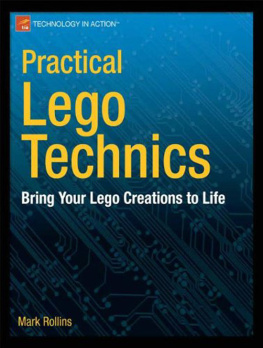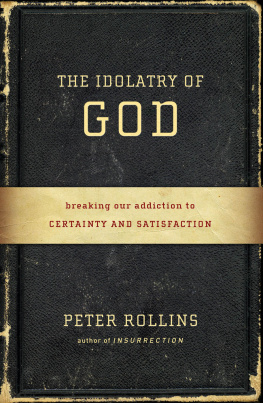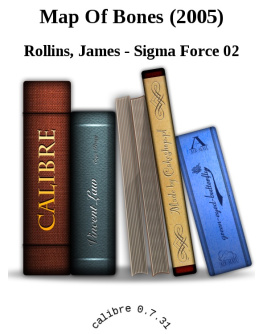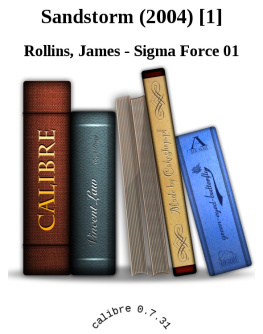The Orthodox Heretic
The Orthodox Heretic
AND OTHER IMPOSSIBLE TALES
PETER ROLLINS

The Orthodox Heretic and Other Impossible Tales
2009 First Printing
Copyright 2009 by Peter Rollins
ISBN 978-1-55725-634-8
All Scripture quotations are taken from the HOLY BIBLE, NEW INTERNATIONAL VERSION NIV. Copyright 1973, 1978 by International Bible Society. Used by permission of Zondervan. All rights reserved.
Library of Congress Cataloging-in-Publication Data
Rollins, Peter.
The orthodox heretic and other impossible tales / Peter Rollins.
p. cm.
Includes bibliographical references.
ISBN 978-1-55725-634-8
1. Christian life. 2. Emergent church movement. I. Title.
BV4515.3.R66 2009
230--dc22 2008048846
10 9 8 7 6 5 4 3 2 1
All rights reserved. No portion of this book may be reproduced, stored in an electronic retrieval system, or transmitted in any form or by any meanselectronic, mechanical, photocopy, recording, or any otherexcept for brief quotations in printed reviews, without the prior permission of the publisher.
Published by Paraclete Press
Brewster, Massachusetts
www.paracletepress.com
Printed in the United States of America
DEDICATION
Most of my closest companions have never read a word I have written. Worse than this, the few who have, see fit to respond with a barrage of abuse (taking great pleasure in finding typos, ill-formed thoughts, and even the faintest hint of hypocrisy). Are these responses not a perfect manifestation of true love? This book is dedicated to them.
CONTENTS
INTRODUCTION
DIS-COURSES: THE SACRED ART OF (MIS)COMMUNICATION
INTRODUCTION
DIS-COURSES
THE SACRED ART OF (MIS)COMMUNICATION
HOW TO SPEAK OF SOMETHING THAT CANNOT BE SAID? Is this dilemma not simultaneously both the obstacle and the opening for those who write of, and wrestle with, the sacred? Is this confrontation with the abyss of the unspeakable not what makes such a writers job both possible and impossible at the same time, enticing the readers to step beyond, into the beyond where one cannot step?
It is precisely the futility of this pursuit that acts as the manna that sustains such desert pilgrims in their unending quest to inscribe, enact, and incarnate truth. And it is as we lean toward such travelers, listening to the dry crackle of their encrypted, elusive whisperings, that we may catch a glimpse of that truth. This truth can be spoken only by those who live it, and heard only by those who heed it. These timeless incantations have gone by many names over the millennia, but one such name is parable. In the parable, truth is not expressed via some detached logical discourse that would be employed to educate us, but rather it emanates from the creation of a lyrical dis-course that inspires and transforms usa dis-course being that form of (mis)communication that sends us spinning off course and onto a new course.
The artist knows only too well that infinite abyss out of which the parable arises, as does the revolutionary and the poet in their struggles to speak of that which is born within and yet which remains beyond words. They know this abyss, for it is reflected in their struggle to make straight the paths for the advent of the impossible.
Our religious world is awash with a vast sea of writing and talks designed to make the truth of faith clear, concise, and palatable. For example, one might encounter a talk comprised of three points, all beginning with the letter p, and all so clear that by the time you leave the room, you will know exactly what to think. Parables subvert this desire to make faith simple and understandable. They do not offer the reader clarity, for they refuse to be captured in the net of a single interpretation and instead demand our eternal return to their words, our wrestling with them, and our puzzling over them.
This does not mean that the words contain no message, or that they mock us as some insoluble puzzle (and thus not really as a puzzle at all). Parables do not substitute sense for nonsense, or order for disorder. Rather, they point beyond these distinctions, inviting us to engage in a mode of reflection that has less to do with fixing meaning than rendering meaning fluid and affective.
A parable does not primarily provide information about our world. Rather, if we allow it to do its work within us, it will change our worldbreaking it open to ever-new possibilities by refusing to be held by the categories that currently exist within that world. In this way the parable transforms the way we hold reality, and thus changes reality itself.
The problem with so much religious communication is that it aims at changing our minds. The result is that we can hear the message of the preacher without necessarily heeding the message; we can listen to the truth and agree with it, yet not change in response to it. To use an example, many of us have had a conversation with someone about how accumulating wealth does not bring happiness, about how working all the hours God sends is not healthy, and that owning bigger and better cars is damaging, not only to the soul, but to the world. But then, after the conversation, those involved turn round and act as if they believed these things.
In contrast, parables represent a mode of communicating that cannot be heard without being heeded, in which the only evidence of having heard its message is in the fleshly incarnation of that message. The parable is heard only when it changes ones social standing to the current reality, not ones mere reflection of it. The parable does not create more self-aware purveyors of ironywhereby one mocks the very behavior that one engages in, thus enjoying the activity in the very moment of disavowing it. (A concrete example of irony would be attending an 80s party dressed up in the clothes of the era, laughing at how ridiculous the clothes and music are, while simultaneously wearing the clothes and dancing to the music.) Rather, the parable facilitates genuine change at the level of action itself. The message is thus hidden in the very words that express it, only to be found by the one who is wholly changed by it. In the words of one great Storyteller, the parable can be heard only by those with ears to hear.
Because of this, I hesitate to call what I have written within these pages parables at all and have thus, in the title, opted for the safer word tales. It is not for me to christen these short stories with the name parables, for who am I to say that they will do the job that I have called them into being to perform? For some they may be parables, while for others they may be nothing but a string of inconsequential stories. For just as one persons idol is anothers icon, so one persons fable is anothers parable.
The format of this book is simple. I have provided a series of short stories gathered together under three headings: Beyond Belief, G-O-D-I-S-N-O-W-H-E-R-E, and Transfigurations. Each of the stories is followed by a small commentary that is designed to act as a guide for the reader. These small commentaries do not, however, expose the truth of the story, nor are they the final word or necessarily of more standing than someone elses careful and thoughtful interpretation. The tales contained here are pregnant with possibilities and, like a child, have the potential to grow beyond what I hoped for, imagined possible, or even desired. As such, it is helpful to approach these commentaries in the same manner as one might approach the descriptions that are often found beside a painting in an art museum. These descriptions are not designed to explain the art, as if the art were somehow incomplete or incompetent, but rather act as a means of providing a place of entry for the uninitiated.
Next page













